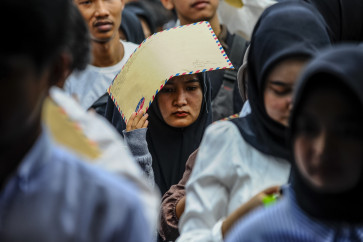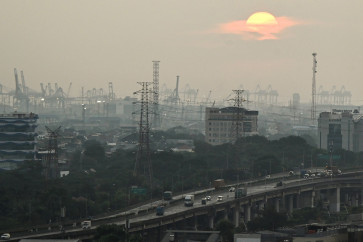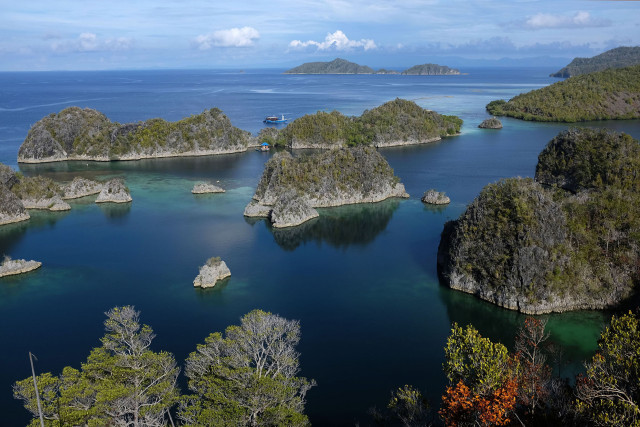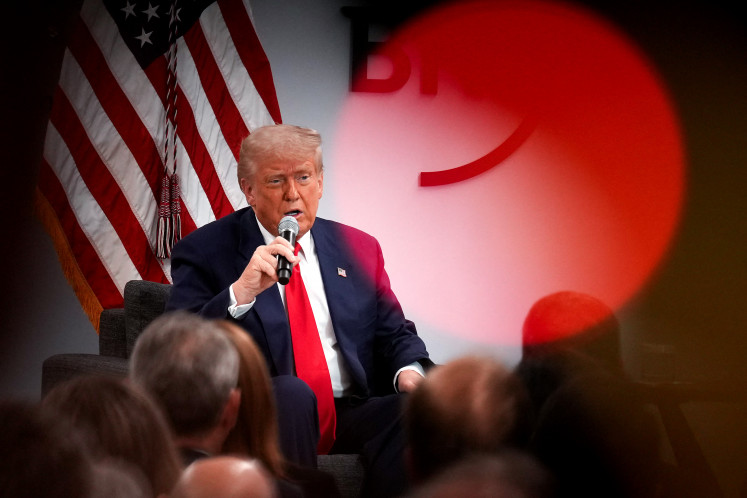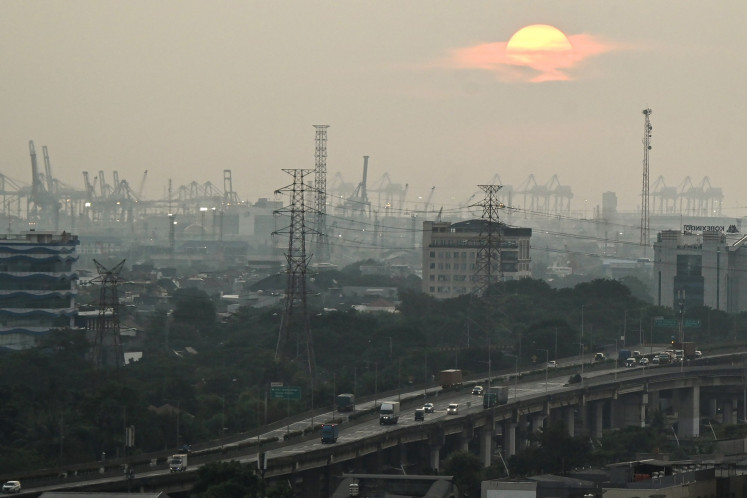MSMEs deemed ready to export despite barriers
The government seems tickled pink that micro, small and medium enterprises (MSMEs) could penetrate the international market with recent governmental support, in spite of some challenges still haunting the sector
Change text size
Gift Premium Articles
to Anyone

T
he government seems tickled pink that micro, small and medium enterprises (MSMEs) could penetrate the international market with recent governmental support, in spite of some challenges still haunting the sector.
President Joko "Jokowi" Widodo has expressed optimism that the country’s areas of expertise, such as handicraft, will be the driving force for MSMEs to export their products, despite the world’s current trade wars.
"There are actually opportunities in niche global markets […] We will lose against countries that already export mass produced products," Jokowi said on the sidelines of a Bank Indonesia (BI) event exhibiting hundreds of MSMEs on Friday.
As such, he applauded BI’s long-term effort to help build and nurture 898 MSMEs from its 46 offices across Indonesia. The central bank has also aided in financing 173 enterprises through its branches.
Over the past few years, BI Governor Perry Warjiyo said the central bank had matched MSMES with local producers, exporters, banks and e-commerce platforms to provide resources to expand their businesses and open doors for exports. BI has also given them greater exposure through large events like the Indonesia Creative Products (KKI) exhibition held on Friday.
As a result, Perry boasted, at least 91 MSMEs under BI exported products worth around Rp 1.37 trillion (US$98.3 million) annually. He also said that more than 393 MSMEs had worked with e-commerce platforms, with transactions reaching Rp 32 billion since July last year.
“These are our real measures for MSMEs, so that they could be a pillar for our national economy,” Perry said.
As most MSMEs highlighted by BI produce creative goods, the Creative Economy Agency (Bekraf) has also been helping producers find investors, while encouraging them to export their products. The agency previously set a target of exporting creative goods worth $21.8 billion this year, 8 percent more than $20 billion worth of goods shipped abroad in 2018.
Several Bekraf reports show that Indonesia’s creative economy mostly exports fashion items, handicraft and culinary products, although the country has also recently sold films, games and other creative goods in the international market.
Apart from BI and Bekraf, banks, financial technology (fintech) firms and other financial industry players have also been sinking their teeth into MSME financing, although such steps have generally aimed at increasing the target enterprise’s business activities and expansion rather than its export productivity.
BI’s strategies and similar ones aim to overcome the sector’s funding problem. A 2018 report by Statistics Indonesia (BPS) shows that 76 percent of MSMEs lack access to loans, as conventional financial institutions often deem them unworthy of credit.
Yet BPS data also reveal that the sector could absorb about 70 percent of the labor force. Data from the Cooperatives and Small and Medium Enterprises Ministry show that MSMEs account for 99 percent of Indonesian businesses, with 62.92 million businesses falling into the category in 2017.
Even as financing becomes easier for MSMEs, Bekraf head Triawan Munaf argued that productivity and distribution were still key for producers to meet large export demand. He said about 300 million middle-class consumers in China were keen to buy Indonesian products, but the producers, he claimed, were not ready to meet the demand.
He has also called on the government to intensify its efforts to establish trade deals with foreign countries to boost exports of creative products, as tariffs imposed by some destination countries had prevented Indonesia from exporting more creative goods last year.
“Even with the [trade] barriers that result in higher prices, customers are still eager to buy our products. So imagine what could happen if there were bilateral agreements,” Triawan said earlier this month.
For Institute for Development of Economics and Finance (Indef) economist Andry Satrio Nugroho, ease of connectivity between local MSMEs and businesspeople in the destination countries was crucial in pushing the sector’s growth outside Indonesia.
As such, he pushed the government to work with foreign marketplaces. He quoted the Chinese-Thai initiative last year through e-commerce giant Alibaba Group that has helped the Southeast Asian country sell local products via the internet, including the 80,000 Monthong durians, mostly produced by MSMEs, that were nabbed the minute they went online.
“Supportive regulations are just as important. In brief, we have to find ways how to make exports for MSMEs as simple as possible,” Andry said.

